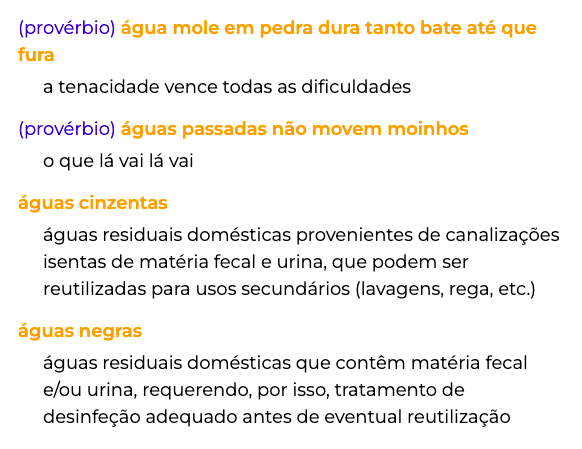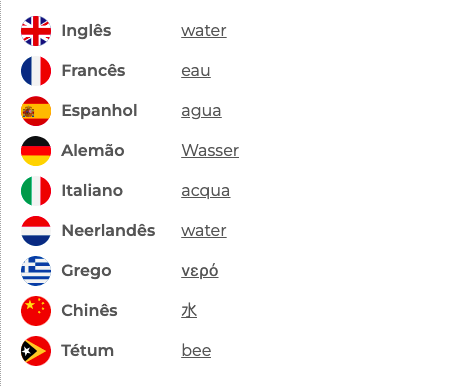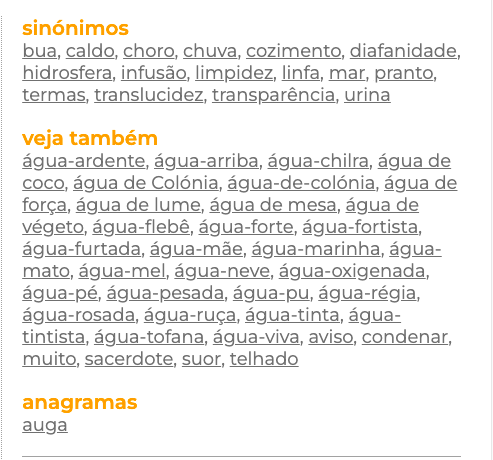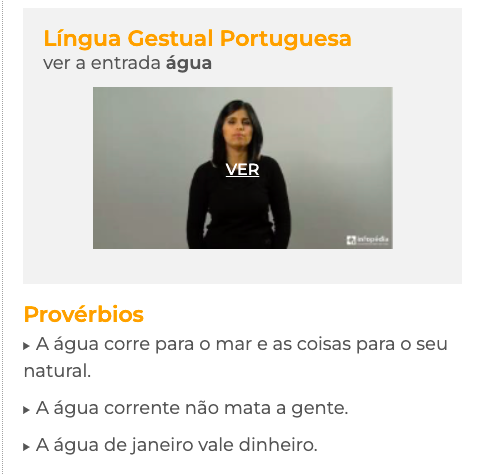How to Choose a Portuguese Dictionary
- Cristiana Jacobs
- Dec 5, 2023
- 6 min read
Dictionaries are fantastic learning tools. However, they are not all the same: they come in different formats, different word count, different objectives etc, and knowing how to choose the right one for you is not difficult, as you will find out below:

Students often ask me what Portuguese dictionary they should buy at some point of their language study and I thought it would be a good idea to write a post in this blog that not only my students but anyone seeking more guidance on how to choose a good Portuguese dictionary may find it helpful.
Let's put things straight: Learners of Portuguese language who don't use a dictionary are not as serious about their learning as they think they are.
I am often asked: "What is the best Portuguese-English dictionary available?" After years of classroom experience, I realised that "the best dictionary is the one you use", that is, the best dictionary available for a beginner student is the one he/she enjoys working with.
Dictionaries are fantastic learning tools. However, they are not all the same: they come in different formats, different word count, different objectives etc, and knowing how to choose the right one for you is not difficult, as you can find out below:
1) Dictionary Formats
English-Portuguese dictionaries are available in basically 3 different formats, and often include a grammar reference and usage examples.
- Paper dictionaries – they can range from small pocket-sized editions to large, comprehensive multi-volume works. If you are a beginner student, aim for a mid-size dictionary, never a pocket edition, you will understand why as you carry on reading this text.

- Handheld electronic dictionaries -- An electronic dictionary is a portable electronic device that serves as the digital form of any kind of dictionary. Available in a number of forms, electronic dictionaries range in function from general single-language dictionaries to very specific, terminology-based dictionaries for medical, legal, and other professional language. You can find more info on this type of dictionary here.

- Online dictionaries and APPS – these are often easy to search, but not always free to use, and, in some cases lack the accuracy (particularly in open collaborative dictionaries), or scope of printed and electronic dictionaries. Your best bet is to stick to dictionary apps from reputable publishers, such as Oxford, Collins, Websters, Porto etc. Exception to the rule, I recommend the excellent Infopedia, from Porto Editora - it's free!
Electronic or Paper Dictionaries - Which one is best?
Portability Students needs to consider where they are going to use the dictionary: a paper dictionary, unless it is a "gem" edition, will be confined to indoor use, as they are bulky to be carried along. Conversely, an online dictionary can be taken on a mobile phone, tablet or laptop and accessed anywhere and some publishers offer offline consultation for their app-based dictionaries, which is handy when internet access is unavailable or poor.
Up-to-date information Another point to consider is how easy it is for publishers to update the dictionary. A print edition is in itself a "finished" work. You can only get an updated edition if you buy a new book. On the other hand, publishers can easily add, subtract and update entries in their web based versions, apps and heldheld devices.
2) Dictionary sizes
Paper dictionaries can be bought in 3 sizes: small ones that will fit into a bag or pocket; desk ones and big editions, which are usually very expensive and not intended to be carried around on the go.
Pocket, mini, gem and concise English-Portuguese dictionaries
These dictionaries will will have shorter, to the point definitions for words, to get more definitions into a small space
The Langenscheidt Pocket Dictionary - 50,000 words
Larousse Pocket Dictionary - 55,000 words, 60,000 translations
Oxford Portuguese Mini Dictionary - . 60,000 translations, 40,000 words
Lonely Planet Portuguese Phrasebook & Dictionary - 3500-word two-way dictionary
Berlitz: Portuguese Pocket Dictionary - 30,000 entries
Collins gem dictionary - the Editor doesn't provide the number of entries.
Mid-size desk Dictionaries:
These dictionaries may have the same number of entries as the pocket ones, however they tend to offer more information about each entry, good ones will offer sentences using the target word.
The Routledge Portuguese Bilingual Dictionary - 65,000 entries
Oxford Essential Portuguese Dictionary - 60,000 translations, 40,000 words
Collins Essential (basic) dictionary - The Editor doesn't provide the number of entries in this dictionary.
Small, desktop or huge - Which one is better?
Some students who prefer to work with paper dictionaries tell me that they like to have a desktop dictionary for homework use and they carry a 'gem' size version inside their bags when they travel. This sounds like a great idea!
Alternatively, if you opt to using an online version, then you can rely on that single format for indoors and outdoors use. The number of entries a dictionary offers is more relevant when you are looking into buying a paper version, as space is limited.
3) Information Scope - A Brief Comparison...
Dictionaries also differ in the scope of their entries. Some of them offer just basic information (gender, class of word, direct translation) and others will bring a more comprehensive understanding of how the word can be used and how it relates to other types of words and expressions. It's important to decide what type of information you need as you progress in your course.
When you start in your Portuguese course, your immediate need is rather straight-forward: finding out what a certain word in your native language translates to in Portuguese and the meaning of a certain Portuguese word you see when you are out and about in Portugal or read in your coursebook.
Beginners focus on a straight-forward, no frills translation, so they can make sense of the sentence and the world around them. As you progress into your A1 course, you realise that knowing the gender and the plural of words (nouns) is very helpful. Further on, you note that words often bring more than one meaning and you need your dictionary to highlight this aspect. In higher levels you want to play with the synonyms and antonyms and even try to add proverbs and figurative language to your speech.
To illustrate these ideas, let's examine the entry for "água" on some of printed and online dictionaries.
Oxford Essential Portuguese Dictionary (Paper Version)

What is included: The entry informs the reader that the "u" in "água" is spoken (note the "w" in the phonetic transcript between the slashes: /'agwa/. It also alerts us about the the stressed syllable - note the apostrophe before "a" /'agwa/. Then, it brings the gender of the word: f (feminine), followed by its basic meaning (water) and some of the ways the word can be used in expressions and other noun-related words.
What is omitted: The entry does not inform how the plural form of the word is formed and the dictionary's system assumes that the users will read its "instruction pages" so that they know that if no class of word is displayed at the entry, then it means the word is a noun. Note that in the entry above, there is no symbol referring its class (noun, verb, adverb, adjective etc). So, the reader must be aware that this means that the word is a noun.
Collins Portuguese-English (Free web based version)

What is included: The online version of the dictionary brings a pronunciation audio clip - this is excellent for beginners as interpreting phonetic notations can be a little daunting. Note that the pronunciation is offered in Brazilian Portuguese.
The entry also brings the plural form, the gender and the class of the word in a very accessible form. Unsurprisingly, the online version allows more room for the inclusion of words that are related to the entry and expressions.
Infopédia (Porto Editora) - (Free, web based)
What is included: The Infopédia brings the most comprehensive body of information. Click the thumbnails to the right of the image above to check them.
Not only does the entry bring the basics, such as gender, stressed syllable, word class, explanation and translation, but also informs the reader of its synonyms and antonyms, expressions, proverbs, word origin, a Brazilian figurative usage of the word, similar and neighbouring words and also its conterpart in Portuguese sign language!
You can also add the word to your favourites so you can revise it later.
All things considered...
In conclusion, choosing the right Portuguese dictionary is essential for effective language learning and communication. As discussed, factors such as accuracy, usability, and additional features should be considered when making your selection. By investing in a quality dictionary that meets your needs, you'll enhance your language skills and confidence in no time. For more tips and insights into mastering the Portuguese language, be sure to explore our blog, where we delve deeper into language techniques and learning strategies. Whether you're a beginner or an advanced learner, there's always something new to discover on your language journey.
Happy learning!
















Comments